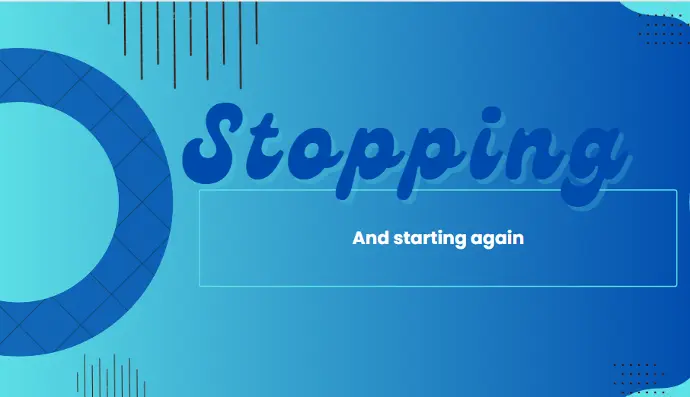Intro
When people talk about habits, they are often referring to bad habits that they would like to break. While it is true that most of us have bad habits and it would probably be good to break them, habits can also be good and helpful in our work to strengthen our mental health. Habits are those things we do that we don’t really have to think about doing - they just sort of happen. Habits as diverse as biting your fingernails to screaming in anger at your siblings to language that comes out of your mouth to mindless scrolling on your phone all start as something you have never done and with repetition become something you do without thinking. Usually, they are repeated because they address some felt need or provide some type of desired outcome in the moment even though they may have long term negative effects.
My Thoughts
For whatever reason, our bad habits tend to develop without notice until we realize that we have a bad habit, while our good habits tend to require intention and choice. (It’s the opposite for breaking bad habits and losing good habits.) But in both cases, the key is repetition until the habit becomes automatic. How long does it take to establish a good habit or break a bad habit? There is an old adage that says anything you do 21 days in a row becomes a habit. But Dr. Caroline Leaf (many books including Cleaning Up Your Mental Mess) says that the research indicates that 63 days is a more accurate estimate. You can get used to doing (or not doing) something in 21 days, but for it to become a part of the automatic behaviors, it takes a bit longer.
Maybe you have tried to break bad habits or establish new ones and been frustrated. Some people get so frustrated that they just give up and hand their minds and habits over to “destiny.” “This is just the way I was born. Nothing I can do about it.” But this is simply not true in almost every person. Our brains have this incredible characteristic called Neuroplasticity which is a fancy word to say that our brains can change and our choices can determine the direction and nature of that change. You can do this!
Conclusion
Here are some thoughts that may help.
- Be patient with yourself. If you beat yourself up everytime you don’t get it right - especially when you are first starting or stopping something, it will be very difficult to stick with it. Remind yourself with statements like, “Change is hard work and it won’t be perfect. But I can stick with this and be kind to myself in the process. It’s going to be at least 63 days!”
- Don’t try to break all your habits at once while also trying to establish all the good habits you should have been doing at the same time. You will only frustrate yourself. Pick one thing and do it well. You will gain confidence to work on each successive habit that you are stopping or starting.
- Related to this, when it comes to breaking bad habits, you may want to include a replacement behavior for the habit you are breaking. Just stopping a behavior leaves you with nothing to address the reason you developed the bad habit in the first place. Fidgets as a part of breaking the habit of biting finger nails could be an example.
- Accountability can help. Ask a parent or sibling or friend to work on something with you and/or check in with you on how you are doing. Choose someone that will help you deal with the early challenges of making changes without being too judgemental.
- Keep a written journal of your progress. It will be a good record of the hard work you are putting in and an encouragement for future habits.
- Finally, remember that change is hard. Our brains would prefer to stay the same because change takes a lot of energy. All the good changes you want to make, whether stopping bad habits or starting good ones, will take effort and intention. But you are strong and can face the challenge. You will be glad you did.
